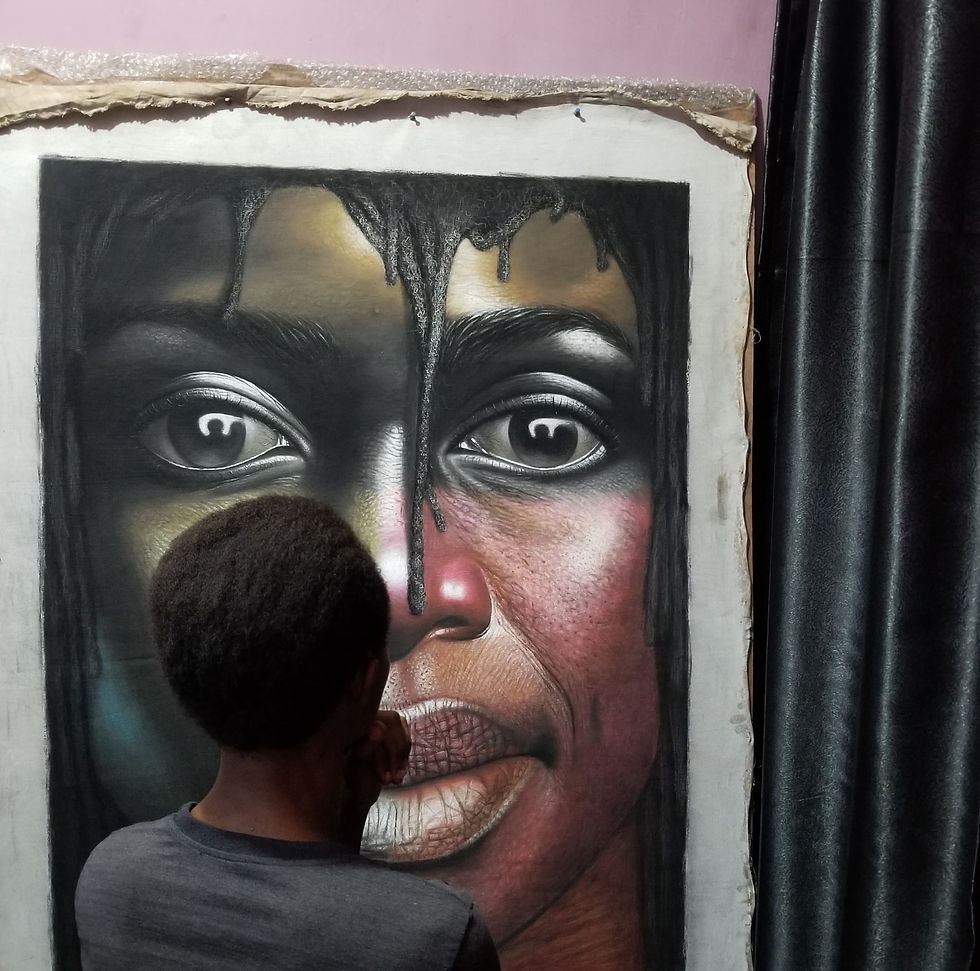A PIECE OF MY MIND
- Timileyin Meleki
- Dec 30, 2024
- 2 min read
Growing up, I heard about how people with impaired vision can tell what is happening around them. I heard about someone with cecity who could read the bible and move around the house, and others that could recognize people with just sound and smell. Being a very curious child, I often practiced living without sight to understand how these was possible. I would walk around, and do chores with my eyes closed just to experience what living without sight is like.

All na lie. No amount of putting myself in someone else's shoes could give their experience. Moreover, we don't need to have someone else's experience to be empathic towards them. Even though I stopped the child's play, my curiosity never left me. I realized how that every human being is limited in sight in one way or the other, when I began to see disabilities beyond a mere physical predicament.
The big question on my mind as I made these pieces came when I began to think about how the human mind relates with external information. Everything we learn is determined largely by our state of mind. You relate with a piece of information according to the state of your mind. This is why two individuals can see a thing and interpret or relate with it differently. They call it perspective, I call it Bias.
Optimism and pessimism are states of the mind and they determine how circumstances are related with. Here is the twist, our state of mind is only a result of an accumulation of information over time. The big question is, which comes first, the mindset or the information?
In a broad sense, there is an easy escape looking at the fact that a newly born baby's mind is an empty slate and socialization and experience is how mindsets are developed. But the question really is on a micro level. Learning new things is a reality in adulthood, letting go of vague knowledge also is. So at this level, what determines the new things I learn, The information or my mindset?
Our individual mindsets is a form of sight disability since our minds are the lenses through which we evaluate the outside world. We should at this point begin to see how physical sight disabilities can open up conversations and thoughts at an encyclopedic scale on the concepts of perception, Judgement and literacy. Accepting that limited knowledge is a common human trait goes a long way in making us more teachable, it also makes it easy to welcome other people's perspectives in our social lives. I will drop the pen here and speak further at the exhibitions.


![The In-sight Exhibition 2024 [Lagos and Ibadan]](https://static.wixstatic.com/media/d55f64_31f21340563644c38e890a3d12af089e~mv2.jpg/v1/fill/w_980,h_1307,al_c,q_85,usm_0.66_1.00_0.01,enc_avif,quality_auto/d55f64_31f21340563644c38e890a3d12af089e~mv2.jpg)
Comments